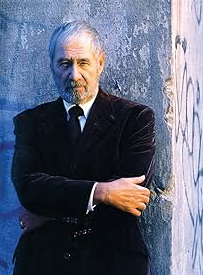by James Scott Bell
@jamesscottbell
Today is release day for Romeo’s Truth. (Ebook at deal price; print to follow shortly.) Tomorrow I begin working in earnest on Romeo #11.
I make it my goal to hit the ground running on a new project as soon as a book is released. I’ve written before about being like a movie studio. I want to have a main project and a few in various stages of development, waiting to get a green light.
Starting a new novel is always a high. I know there will be low points, like the “30k wall.” I don’t know why this happens, but I’ve heard other authors experience it, too. When I get to that mark I begin to think of the long road ahead, and also wonder if my foundations are strong enough. I look at my outline and structure. My main concern is having the hero locked into a death struggle. My definition of great fiction is that it is the record of how a character fights with death. Death comes in three forms: physical (as in the thriller); professional or vocational; and psychological/spiritual. The stakes have to be that high to generate optimum reader interest.
There’s always a way to break through the wall, or at least climb over it. Once that’s done, I’m off and running again to the end.
I always celebrate when I finish a book. Do something fun, like take my long-suffering wife out for a nice dinner. Or cook our favorite meal at home, which always involves a ribeye steak and nice bottle of California Cabernet, followed by a movie or one of our favorites shows, like a Sherlock Holmes with Jeremy Brett, or a Poirot with David Suchet.
Before starting work on the new book, I pause. I’m anxious and ready to go, but there’s also a little knot of hesitation. How do I do this again? Write a whole book? Thriller writer J. T. Ellison once said, “It’s the whole getting started thing for me. I forget how to write a book. The first ten thousand words are like digging fossils from rocks.”
In a TV interview, Dean Koontz expressed a similar feeling, So he goes into a huge room in his huge house, where shelves are packed with all his books, foreign and domestic. He looks a them and says, “I did it before, I can do it again.” That’s Dean freaking Koontz! (Over 140 novels, 500 million sold).
So I have a little ritual. I settle into my chair with a cup of my favorite java. I look at the visual inspirations in my office. There’s a photo of John D. McDonald, pipe in mouth, typing away. There’s an author photo of Evan Hunter, aka Ed McBain, looking at me as if to say, “Don’t give me any excuses. Write!” There’s the black coffee mug with WRITER on it, which I bought the year I decided I was going to be a writer, even though naysayers had told me I couldn’t learn how. I put that mug where I could look at it every day, which I did for the seven years it took me to sell my first novel.
Then I put on coffeehouse sounds via Coffitivity, wiggle my fingers, and start typing.
How do you feel about starting a new project? High, hopeful, or hesitant? Do you have any writing rituals?


 A controversy over an award-winning female thriller author has broken out in Europe. That’s because the female thriller author doesn’t exist. “She” is really three men who have been writing under the pseudonym Carmen Mola. When one of their novels won a million-euro prize, the trio
A controversy over an award-winning female thriller author has broken out in Europe. That’s because the female thriller author doesn’t exist. “She” is really three men who have been writing under the pseudonym Carmen Mola. When one of their novels won a million-euro prize, the trio